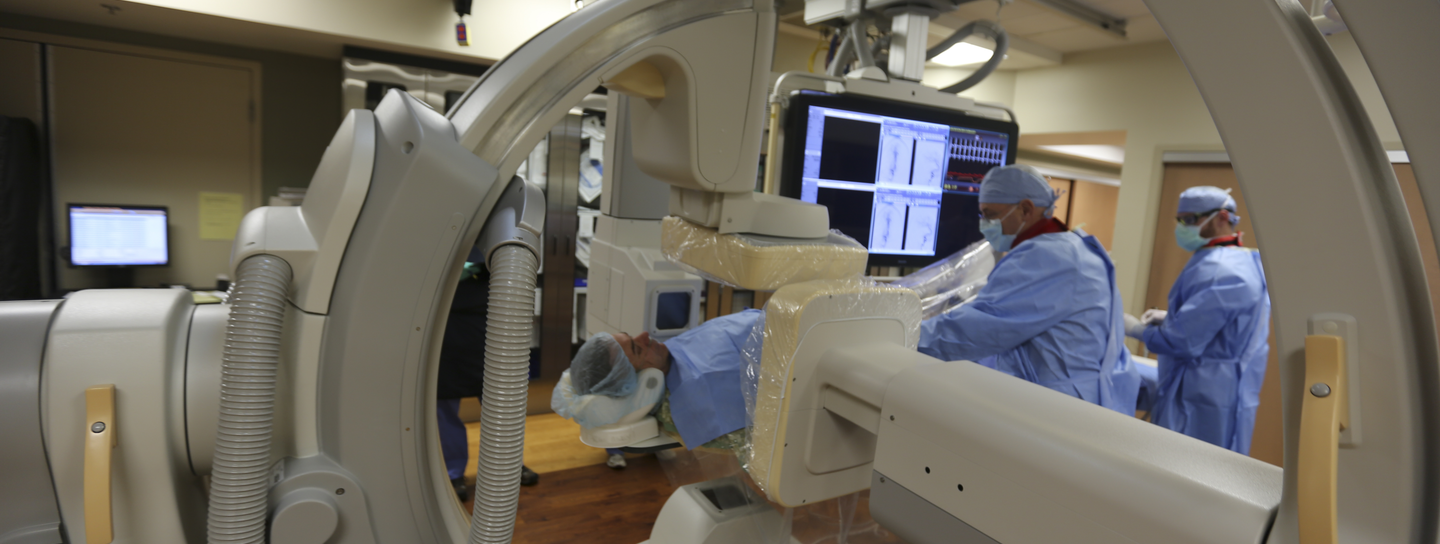
Neurointerventional Surgery

Neurointerventional Surgery
Precision Treatment for Faster Recovery
Neurointerventional surgeons use a catheter and image guidance to perform minimally invasive treatments in the head, neck, and spine, often eliminating the need for open surgery. Our team utilizes advanced imaging capabilities that make cerebrovascular surgery safer than it has ever been, including functional and perfusion imaging, rotational angiography, and the use of augmented reality imaging. These treatments can be used to manage conditions such as stroke, aneurysms, spine pain, atherosclerosis, and vascular tumors of the head and neck.

We offer you clinical expertise, advanced training and a strong focus on achieving your best possible health outcome.

Find a Provider
Learn more about our providers' clinical skill and depth of experience.



